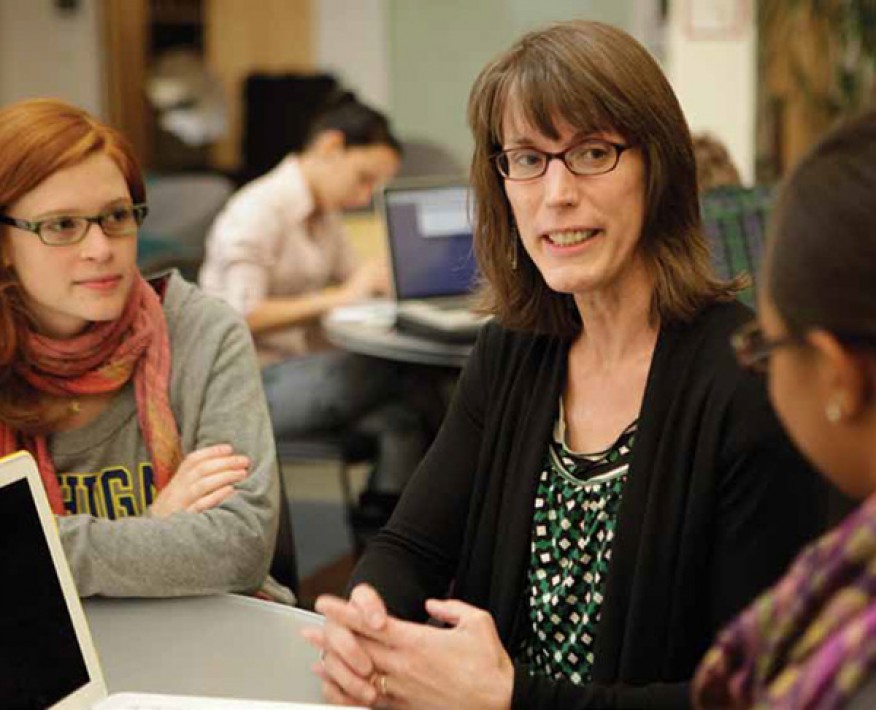Kristin Seefeldt’s interest in poverty began with an internship at the Urban Institute, and by the time she graduated from Georgetown University, she had a full-time job working on projects related to low-income families.
“During my first couple of months at Urban, I was doing interviews with welfare case managers, and overheard a low-income woman talking about her choices regarding where to live, since she’d lost her housing…none of the options looked good. I wanted to contribute to helping find better options.”
There was an expectation that after welfare reform, low-income women would move into better jobs, but unfortunately that didn’t happen.
And there’s no stopping Seefeldt in her quest to find solutions. Seefeldt joined the UM SSW faculty during the fall of 2012. She joins us from Indiana University School of Public and Environmental Affairs. Previously, Seefeldt was an assistant research scientist at the Gerald R. Ford School of Public Policy and the assistant director of the National Poverty Center, both at the University of Michigan. She earned her PhD from the UM in Sociology and Public Policy in 2010.
Kristin Seefeldt’s book, Working After Welfare: How Women Balance Jobs and Family in the Wake of Welfare Reform was published in 2008 after several years of researching families and their financial coping strategies. “There was an expectation that after welfare reform, low-income women would move into better jobs, but unfortunately that didn’t happen,” she explained.
According to Seefeldt’s study, rather than take promotions or move on to a new job, women who were on welfare often settle on a job that fits with their family needs. This often means remaining in low-paying jobs, since different career paths could lead to uncertainty about schedules. Seefeldt sought to understand the women’s decision making and their experiences with the welfare-to-work transition.
“This understanding is essential to developing policies to support these workers and help them move out of low-paying jobs.”
All of the women interviewed agreed that the pay rate was an important factor in determining the quality of a job, but according to Seefeldt, affordable and reliable childcare is a huge determining factor for the success of these women.
“We need better childcare options,” Seefeldt said. “If our country believes it’s important to invest in children, then we should pay more tax dollars to support these efforts.”
Nearly half of the women interviewed believed that their single largest challenge to advancing in the work place is their insufficient education.
“I’d like to see increased financial aid for the education of women, so that more low-wage workers can get the skills needed for higher-paying jobs.”
Seefeldt continues to search for answers as she conducts further research with low- to moderate-income women and what they do to manage their financial lives. A new book is on the horizon for Seefeldt, and UM SSW welcomes her, and applauds her research and dedication to poverty issues.
